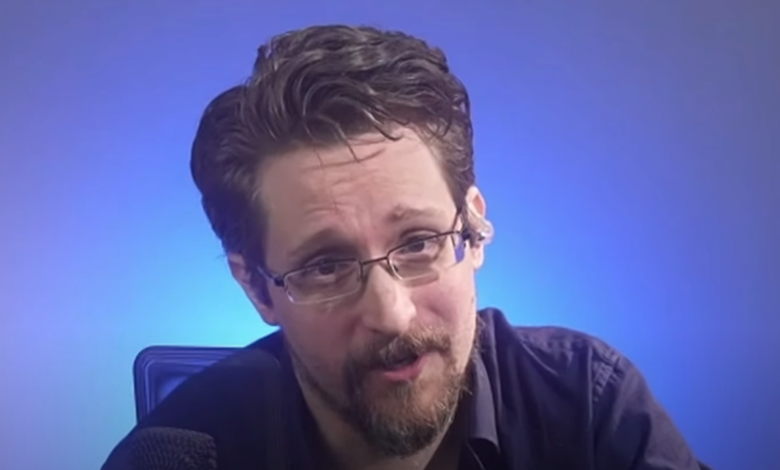
At the recent TOKEN2049 conference in Singapore, Edward Snowden, a prominent whistleblower and advocate for privacy, made pointed remarks concerning Solana. His speech, titled “The Next Threat to Speech,” was followed by a Q&A session where Snowden delved into the architecture of Solana, raising alarms about its centralized structure and the nature of the projects it supports.
Comparing Solana and Bitcoin’s Architectural Designs
During the session, Snowden was asked, “How do we design technology from first principles so we know it’s safe?” In response, he drew a stark contrast between Bitcoin’s adversarial design and Solana’s perceived vulnerabilities due to its centralized system.
“When you look back at the Bitcoin whitepaper, I think what you see is an adversarial approach to the system. And that is what you really have to consider,” Snowden stated. He further elaborated, “I don’t want to name names but Solana is taking good ideas and they’re just going, well what if we just centralized everything? It’ll be faster, it’ll be more efficient, it’ll be cheaper, and yeah sure it is, you’re right, but nobody’s using it but for meme coins and scams.”
The Risks of Centralization
Snowden expressed his deeper concerns regarding Solana’s centralized framework, suggesting it could be susceptible to governmental control or other external manipulations. He warned, “If anybody puts anything significant on it and then all the states begin moving towards it, it’s going to be a system that has levers that people can simply just take from you.” Such centralization, Snowden argues, could lead to potential censorship or asset seizures in the future.
Highlighting the importance of adversarial thinking in the design of decentralized systems, Snowden emphasized the necessity of preparing for potential attacks. “You have to be thinking about the adversarial case as opposed to the convenient, easy early case. That means thinking about how it’s going to be attacked and making sure it can survive that,” he advised during his address.
Solana Community Reacts to Snowden’s Critique
Snowden’s comments quickly reverberated throughout the Solana community, prompting reactions from several key figures within the SOL ecosystem. Mert Mumtaz, co-founder and CEO of Helius Labs, a project based on Solana, took to X to counter Snowden’s assertions, demanding evidence for the claims of centralization.
“Snowden seems to think Solana is centralized—while giving zero data to back it up,” Mumtaz posted. He challenged critics to show any concrete vulnerabilities in Solana that could allow a single entity to control the network or compromise user funds.
Mumtaz highlighted the geographical distribution of Solana’s nodes and the diversity of jurisdictions they operate within as a defense against Snowden’s claims. He acknowledged that while Bitcoin and Ethereum exhibit greater decentralization, this does not inherently imply that Solana is susceptible to the centralized control Snowden suggested.
“Here’s what you may say instead: Ethereum and Bitcoin are more decentralized than Solana — this is correct. Usain Bolt is faster than Lebron James in a 100m dash, that does not mean Lebron is slow. The only possible single point of failure would be: a single client,” Mumtaz explained.
Highlighting recent advancements in Solana’s client diversity, Mumtaz pointed to the deployment of “frankendancer” on the mainnet, along with the forthcoming “Firedancer” client, which aims to further decentralize the network. He concluded his defense with a challenge, “If the network is so centralized, it’s worth tens of billions—go attack it if you can!”
As of the latest updates, SOL was trading at $143.







